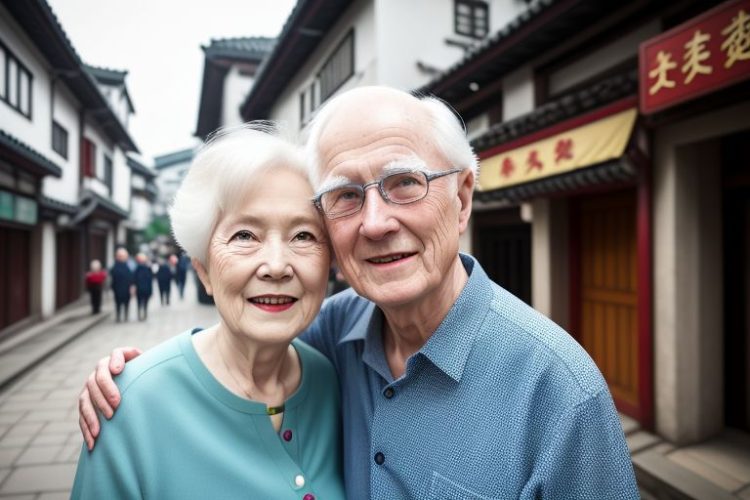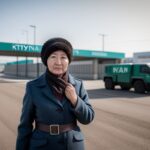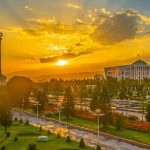Introduction
Retiring to a far-off land sounds exciting and daunting at the same time; for British pensioners, this could be the case when they think of moving to China. Rich in history, vibrant in culture, and ultramodern, China presents a very unique background to retire in. It would, however, have been prudent to discover some practicalities and lifestyle implications of moving to this enormous, diversified country before such a huge decision was made. This article will detail whether or not British pensioners can retire to China and what may influence their decision.
Visa Requirements for Retiring in China
Retirement in China means getting through a very complex system of visas and residence options. Of late, some countries have introduced specific retirement visas; however, China does not offer any type of retirement visa for foreign nationals. Thus, British pensioners looking to go to China for a long-term stay shall have to consider alternative available options on the visa front.
Usually, foreign nationals come either on a work or family reunion visa. Among the available options, getting a long-term visa, possibly through an investment visa or family-based visa in case some retiree has relatives living in China, maybe one way for a retiree to enter China. Otherwise, he may get in through a business visa, but in this case, some kind of business activity needs to be continued.
It is important that British pensioners consult with the Chinese Embassy or Consulate for the latest visa options and requirements. It is also useful to consult with a qualified attorney who specializes in Chinese immigration law to help guide and navigate the process.
Cost of Living in China
One of the most alluring reasons why people retire to China is that the general cost of living is lower than in the UK. Major cities like Beijing and Shanghai offer a full range from luxury apartments down to humble apartments, with prices at a very affordable rate compared to Western standards.
Aside from accommodations, daily expenses arising from food, transportation, and utilities are generally low. The street food and local dining not only come cheap but are also full of flavor. One should remember that the price of commodities is higher in large cities compared to towns or countryside areas. For a pensioner, such a reduced cost of living would allow retirement savings to go further and provide a comfortable way of living.
Healthcare in China
The major consideration for retirees is healthcare, and China has it in both public and private options. While public facilities would suffice for minor illnesses at very reasonable prices, most foreign nationals patronize private facilities since they maintain higher standards and the personnel can understand and speak English.
Most larger cities have international hospitals and clinics that deal with the needs of foreign residents, from simple checkups to more serious interventions. British pensioners would be well-advised to have full international health insurance coverage in case they seek any medical intervention. Be prepared to encounter language barriers, and be sure that your insurance can adequately provide for your medical needs when living abroad.
Lifestyle and Cultural Considerations
There is a mix of excitement in retiring in China between modernity and tradition. The country boasts a rich cultural heritage, having numerous historical sites, colorful festivals, and traditional practices. It ranges from visiting the Great Wall and the Forbidden City to exploring the colorful local markets and participating in tea ceremonies—there’s always something to be done.
Nevertheless, integration into Chinese society may require some getting used to it. One major problem can be the language, as this is Mandarin. Although English is becoming more common in business and tourist locations, it really does help with everyday living and settling if one can learn some simple Mandarin.
The lifestyle in China may differ significantly depending on the region. Big cities offer great opportunities to enjoy contemporary living and the availability of all sorts of cultural events and social activities for retirees. Life runs at a much slower pace, where more traditional customs dominate the scene in rural areas. Each setting is a different experience in retirement, and it is important for retirees to choose the kind of environment that best fits their preferred lifestyle.
Safety and Security
By and large, China is a safe country to live in. The general crime rates are very low, and public order is highly valued. Its major cities are well-policed, hence there is no general cause for concern regarding the safety of residents and travelers. Nevertheless, as in most countries, common sense should prevail, and local laws and regulations respected.
Attention should also be paid by British pensioners to cultural differences and legal frameworks in China. What is acceptable in the UK in some instances or expressions takes on a different meaning in China. Knowing local customs and regulations, therefore, will help avoid any misapprehensions and to go about living smoothly and respectfully.
Climate and Weather
The climate of China varies from temperate zones in the north to subtropical and tropical in the south. Weather can have a large impact on comfort and daily life, so you should be aware of the local climate where you plan to retire.
Cities such as Beijing have hot summers and cold winters, while cities like Hong Kong have a subtropical climate with hot, humid summers and mild winters. If you are looking forward to some particular climate, then it is essential to choose a region which most suits your taste and lifestyle.
Accessibility and Travel
Its enormity makes travel in China both exciting and complex. The country is well-covered with a developed transportation network that makes traveling to its various regions relatively easy, with very fast trains, extensive subway systems, and hundreds of domestic flights.
In case of international travel, the big cities—like Beijing and Shanghai—have more flights to all parts of the world. However, it is always prudent to plan any logistics of travel in advance, especially when dealing with visas and travel restrictions.
Conclusion
To put it in other words, retirement in China for a British pensioner is theoretically possible but needs to be associated with a complex system of visas and a greater connection to a completely different cultural and lifestyle environment. While China offers prospective retirement with a lower cost of living, varied healthcare facilities, and enriching cultural experiences, any potential retiree needs to take into careful account the necessity of obtaining a visa, specific regional climates, and language barriers to ensure that his or her retirement plan fits his or her goals and criteria.
It is advisable to do thorough research before making a decision, consult immigration experts, and perhaps spend time in China to become familiar with everyday life. If planned and prepared for carefully, retiring to China could prove to be a unique and rewarding retirement experience.
Related posts:

Ray Brocklesby, the site owner, is a Brit who now lives in the Philippines. He is retired and lives with his wife Weng, Daughter Kristelle, nephews, Harvey and Boknoy, and mother-in-law. Ray also has a son and daughter living in the UK, and a son in New Zealand.













